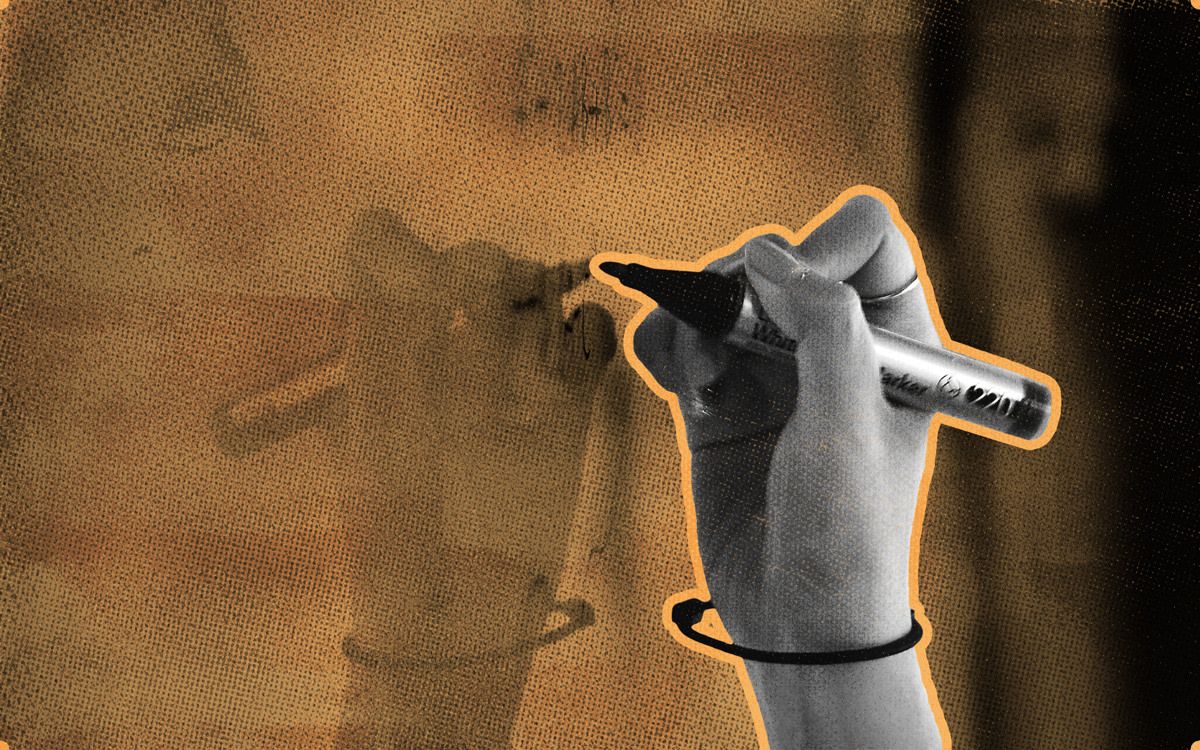
Your sales pipeline is bone dry. The flood of leads and opportunities has turned into a trickle, leaving you scrambling to find new opportunities amidst a worldwide crisis. The dream of having the best quarter ever has turned into a nightmare of missing your quota. What should you do?
If you’re looking for tactics on filling your pipeline in X amounts of days, you’re in the wrong place. There are plenty of articles willing to teach you tactics. This post is different: I’m going to show you how to change your mindset.
The truth is, if sales was about tactics, anyone could do it. What separates an average salesperson from a great salesperson is their mindset. A great salesperson's mindset allows them to see opportunities no one else can and do what no one else will.
With the right mindset, a dry pipeline is your chance to experiment and become a stronger salesperson, even during a crisis. Here are the mistakes you need to avoid when your pipeline dries up and how to make the most of this hidden opportunity.
The mistakes most reps make when their pipeline dries up
The number one mistake reps make when their pipeline dries up? Getting anxious.
In an effort to make up for the lack of volume, anxious salespeople try to overcompensate with perfect execution. They tell themselves, “Since I don’t have many prospects to work with, every prospect is incredibly important. I have to convert more of them and I can’t make any mistakes or upset them.”
In addition to the anxiety we all have due to the COVID-19 outbreak, this kind of sales anxiety can effectively kill any leads that are left in the rep's pipeline.
Despite trying to be inoffensive as possible, anxious salespeople still lose. Tip-toeing around prospects in an effort to avoid making mistakes or upsetting them demonstrates neediness. No one wants to do business with a needy person, which results in either lost deals or poorly negotiated deals that heavily favor the prospect.
In sales, being meek and mild leads nowhere; salespeople must lead with friendly strength.
3 more mistakes anxious sales reps make
Allowing anxiety to control your actions is the biggest mistake, but here are three more common ones.
Mistake #1: Buying lead lists and spamming leads. Compared to other lead generation methods, buying lists produces the highest quantity but lowest quality of leads. Buying lists will cost you twice: once, when you buy the list and then, when you waste time by reaching out to unqualified leads.
Mistake #2: Selling to the wrong prospect. Finding and selling to your ideal customer requires time and patience. In comparison, chasing after any prospect with a pulse and a credit card seems like a quick way to generate revenue. Nonetheless, selling to the wrong customers is expensive: They require more customer support, churn at a higher rate, and will bad-mouth your company. Any revenue gained from them is chewed up by their high costs.
Mistake #3: Discounting your offer. When done correctly, discounts can help close deals faster. Otherwise, constant discounts attract the wrong type of customers, customers who care more about pinching pennies than value.
Now during the extraordinary times we're living in—discounts can be a very valuable tool to win new customers, and for many companies, it'll be very hard to get new customers without some form of promotional offer. Before you offer a discount, think about how to structure your offer and why you think the particular discount you have in mind is the most effective one.
What to do during a sales drought instead: Get bold and experiment
Normally, when you have many deals in the pipeline, you’re in execution mode. Your main concern is following up with prospects and closing deals, not exploring different ways to sell. However, a dry sales pipeline allows you to enter exploration mode because fewer prospects and deals mean more time to experiment and learn.
Don't waste time at work panicking because your pipeline is dry. The COVID-19 outbreak has given us all enough to panic about outside of work: So, use the time you spend selling to level-up your skills.
Here are four ways you can experiment with selling and become a better salesperson during this crisis:
1. Increase revenue through upselling
The lure of attracting new customers is powerful and exciting. But if you want to increase revenue, upselling existing customers is the easiest path for one simple reason: trust.
With new customers, you must build trust before they’ll listen to you, let alone buy your product. In comparison, your existing customers already trust you. If they bought from you once, they’ll buy from you again.
Also, upselling is more cost effective. According to the Pacific Crest SaaS Survey, which surveys hundreds of SaaS companies, “The median Customer Acquisition Cost (CAC) for upsells is just $0.28 per $1, less than a quarter of the $1.18 spent to acquire $1 of revenue from a new customer.”
In this time of crisis, it's essential to find ways to genuinely help your customers. So, go visit your customers (or, if that's not possible in your area, plan a virtual coffee with them). Talk to them about the situation and give real, practical advice. Try to understand what new challenges they're facing. In these conversations, the opportunity for an upsell that can genuinely help them through this crisis may come up naturally.
2. Experiment with your cold call scripts and email templates
Over time, even the best scripts and email templates become ineffective. For instance, the subject line “Quick question” used to be very effective. Because it was effective, people (including me) taught it to other salespeople. Nowadays, I get so many emails with that subject line, I automatically archive them.
This is especially true during the current pandemic. Will your subject lines get a better open rate if they mention COVID-19? How should you adapt your scripts to acknowledge the current world situation? These are questions you need to answer by experimenting and tracking the results.
Before you test your sales materials, check out “How to experiment your way to more effective cold email templates” and “Minimum viable sales documentation.”
Stay ahead with innovative subject lines and email templates using Close's Email Subject Line Generator. Continuously adapt and optimize your outreach for better results!
3. Sell longer contracts
In SaaS, month-to-month subscriptions are the standard. Customers love the flexibility and businesses love the steady flow of revenue. That said, there’s always the risk that customers will churn before you can make a profit off of them.
Try selling annual contracts, or even 2-year contracts. Try getting them to pay up front instead of monthly. This is especially important during the pandemic, because your business needs cash-flow now to prepare for what's coming.
Prospects may resist because they don’t like making these long-term commitments right now. But if you can make them see why it’s of value to them during this crisis, both you and your prospect will win.
4. Get more referral sales
Getting referral sales from existing customers is like upselling: It’s easier than acquiring new customers yet not enough salespeople do it. Either they’re afraid of asking customers, and possibly damaging those relationships, or they half-ass it.
Start by devoting time to your customers' success. Give them sincere advice and help to overcome the challenges they're facing due to COVID-19. Then ask them for referrals to two people in the same business who would benefit from your offer. If you’ve done a good job, they’ll happily refer you to other potential customers.
Again, don’t worry about offending people or making mistakes. Just go out there and try different things. For even more ideas, read “Sales team seasonality: How to maximize downtime.”
Embrace an abundance mindset
When the world is in crisis mode and opportunities start to dry up, it’s easy to embrace a scarcity mindset. Under a scarcity mindset, there’s never enough time or resources to achieve your desired outcome. A scarcity mindset causes you to focus on preservation instead of growth, leading to missed opportunities.
An abundance mindset is the exact opposite. To quote Katia Verresen, an executive coach to top startups, “Abundance is really your ability to see more in your life: More options, more choices, more resources.” Instead of being limited by what you lack, an abundance mindset means appreciating what you already have and turning disadvantages into advantages.
Choosing between a scarcity and an abundance mindset is like choosing whether to believe the glass is half empty or full. The amount of water in the glass doesn’t change; your perception of it does. So how can you cultivate an abundance mindset?
Here are three of Katia Verresen’s tips on how to develop an abundance mindset:
- Open your eyes. When you’re hyperfocused on a problem, you filter out anything that contradicts it, including new angles and possible solutions. Break out of that rut by asking yourself open-ended questions like, “What are my choices here?”
- Be generous. Even if you don’t feel like you have a lot to offer, give people your attention, kindness, and knowledge. When you give more, you receive more.
- Practice gratitude. Gratitude lets you appreciate what you currently have and reveals resources and opportunities hidden right in front of you.
Scarcity can never solve scarcity—only abundance can do that.
Be bold, try new things, have fun
When you have the right mindset, you can keep calm during a crisis and keep selling during a downturn. While everyone else is panicking, you’ll be too busy creating your own opportunities to notice a shortage. That could mean upselling, experimenting on your sales materials, selling longer subscriptions, or doing referral sales. The only limitation is your imagination.
However, you can’t be creative with a scarcity mindset. Use abundant thinking to help you identify your advantages and leverage them into new opportunities.
Looking for more advice to keep selling during the COVID-19 crisis? Check out our Remote Sales Survival Guide to find the latest resources and best tools to keep selling from home.
 |
Don't like reading? Here's a video where I discuss why you shouldn't stress over a dry sales pipeline and how to make the most of it by experimenting.
Recommended reading:
Sales team seasonality: How to maximize downtime
Even in sales, business slows down—but you don't have to. Maximize downtime by doing these three things and when sales picks up again, you'll crush it.
Why “the economy” isn’t an excuse to fail
Even unicorns aren’t invincible. While the economic downturn has smaller startups on edge, downturns are full of opportunities. Here's why.
Stay calm and close deals: How to effectively deal with stress in your sales team
While some stress is good, it can negatively impact the productivity of a sales team.Here are 4 techniques that every salesperson can apply to cope with stress.










